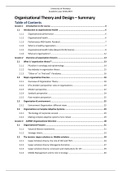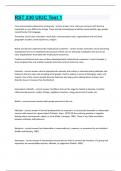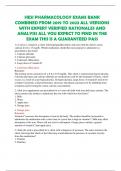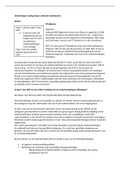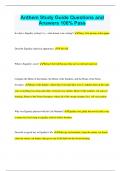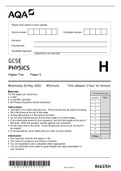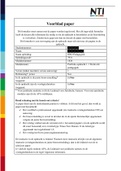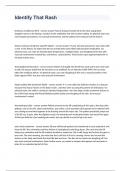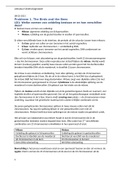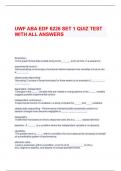Resume
Organisational Theory and Design - Summary ()
- Établissement
- Universiteit Antwerpen (UA)
- Book
- Beyond Performance
Complete summary of Organisational Theory and Design (OT&D) lectured by Alain Guiette in . Based on the slides and lecture notes. Follows the framework of the book Beyond Performance.
[Montrer plus]
